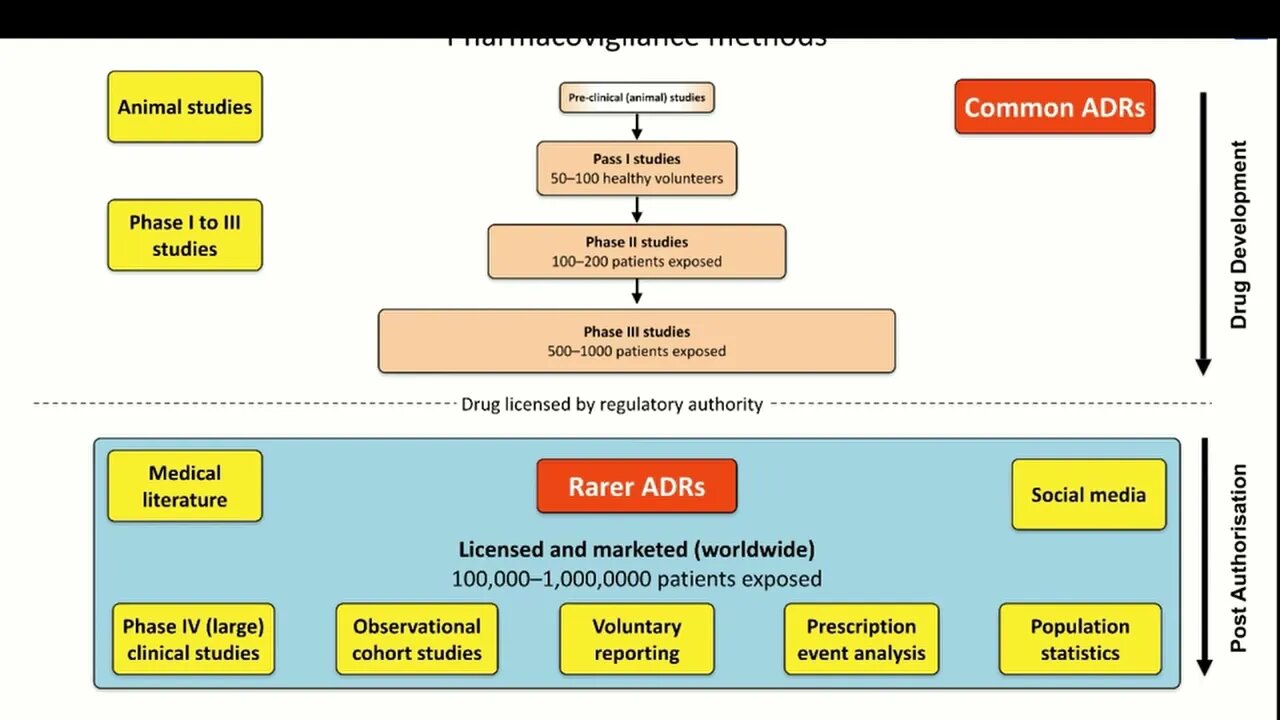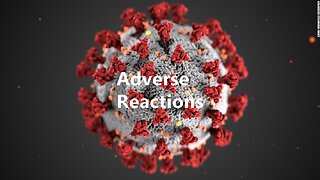Premium Only Content

What is Adverse Drug Reactions
What is an adverse drug reaction?
An adverse drug reaction is a harmful reaction to a medicine given at the correct dose. The reaction can start soon after you take the medicine, or up to 2 weeks after you stop. An adverse drug reaction can cause serious conditions such toxic epidermal necrolysis (TEN) and anaphylaxis. TEN can cause severe skin damage. Anaphylaxis is a sudden, life-threatening reaction that needs immediate treatment. Ask your healthcare provider for more information on TEN, anaphylaxis, and other serious reactions.
What are the signs and symptoms of an adverse drug reaction?
Mild symptoms include red, itchy, flaky, or swollen skin. You may have a flat, red area on your skin that is covered with small bumps. You may also have hives.
Severe symptoms include skin that blisters or peels, vision problems, and severe swelling or itching. Severe reactions include conditions such as toxic epidermal necrolysis (TEN). Ask your healthcare provider for more information on TEN and other serious conditions.
Anaphylaxis symptoms include throat tightness, trouble breathing, tingling, dizziness, and wheezing. Anaphylaxis is a sudden, life-threatening reaction that needs immediate treatment. Anaphylaxis may occur if you exercise after exposure to another trigger, such as after you take an antibiotic.
-
 3:13
3:13
DolindoRuotolo
2 years agoCovid vaccine adverse reactions
392 -
 6:04
6:04
MayorOfTheFacts
2 years agoAdverse Reactions COVY JABS
61 -
 2:03
2:03
CosmicStellar
2 years agoWhy Some Have Adverse Reactions & Others Don’t
161 -
 14:54
14:54
AlternativeWorldNews
2 years agoCovid Vaccine Adverse Reactions 2021
5042 -
 2:03
2:03
Istillhavehope
2 years agoWhy Some Have Adverse Reactions & Others Don’t
1.31K3 -
 12:45
12:45
Biological Medicine
2 years agoBill Gates Defend 80% Adverse Reactions to Covid Shot
6386 -
 11:59
11:59
Sam2IAm
2 years agoAUSTRALIA'S ADVERSE REACTIONS VICTIMS - REAL STORIES
8 -
 1:37:32
1:37:32
Truth2trust
2 years agoWarning Graphic Content 2021-2022- Adverse reactions
68 -
 1:50
1:50
ParadigmShift2020
2 years agoVaccine Center Has 6 Adverse Reactions Within Hours.
2172 -
 22:29
22:29
JasminLaine
16 hours agoAwkward Silence After Poilievre FACT CHECKS Reporter—Carney’s Face SAYS IT ALL
25810